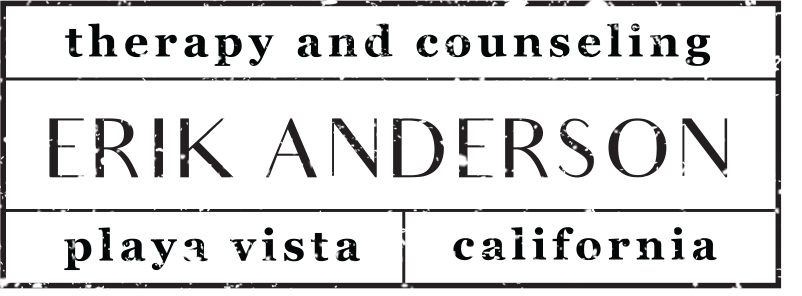Exploring Therapy for Grief
Grief is a natural human reaction to loss and can manifest itself in many ways. Because intense, and even debilitating sadness is a normal experience in the immediate wake of loss, therapy for grief isn’t always necessary; however, there’s no need to weather the storm alone. Therapy can help individuals, couples, or families navigate their grief in a safe, supportive way.
What is grief therapy?
Grief therapy is a type of counseling that can help people sort through their emotions, create new coping tools, and ultimately rebuild a meaningful life after loss.
What is the best therapy for grief and loss?
Just as no two people will grieve in exactly the same way, there is no single therapeutic approach to grief that will work for everyone. The particular type of support a person will need after loss will depend on that person's unique needs and situation. Some may simply need to be deeply heard and understood, while others may need help addressing underlying mental health concerns brought forward by the loss, such as problem drinking. Each of the major therapeutic modalities offers a slightly different lens through which therapist and client can look at grief and find solutions.
While it is true that many people are able to make it to the other side of grief without professional help, the research indicates that therapy for grief can be the difference between simply surviving after a loss, to actually thriving. So, the best answer to the question, what is the best therapy for grief and loss?, is whichever therapeutic approach helps you feel most understood and supported.
Exploring Grief Myths
While grief is universal, there are still many popular myths surrounding grief that can make the journey through loss an even tougher one. In attempting to identify what type of therapy would be best for you, taking the time to unpack some common grief myths may give you some ideas about your particular challenges.
Myth #1: There is a “right” way to grieve
Grief is, and has always been, universal. But the fact that we all grieve may be where the similarities stop. The ways we think about loss, the feelings we experience, the ways we talk about loss, and the rituals that bring us comfort all vary widely, depending on the unique intersection of our culture, life experience, and personality.
Many people struggle with judging themselves during their grieving process, believing that they should only be feeling certain feelings, that they should be “over it by now,” or that their loss “doesn’t count” because it wasn’t a death. The truth is, your journey through any particular loss is strictly your own.
Myth #2: Grief is only caused by the loss of a loved one
Another myth is that grief is only caused by the death of a loved one. The fact is, any loss can cause grief. Even tiny toddlers may experience natural feelings of sadness after a big change, like switching to a bigger bed or starting pre-school. Grief can also be experienced when life does not meet our expectations, or when we are forced to acknowledge limitations in ourselves or other people. So, while some may believe they’ve never experienced grief, in actuality, they almost certainly have.
Myth #3: You need/don’t need to go to therapy for grief
Some people believe that it’s impossible to make it through grief without professional help; others believe that grief is always excruciating, so there’s never any need for therapy after loss. The truth is that, no matter how “normal” your grief may be, you may still benefit from some professional support.
If your feelings are so extreme that your basic needs are going unmet, you're worried about becoming a danger to yourself, or you’re engaging in self-destructive habits like excessive drinking, it’s definitely time to reach out for help. A professional can help you choose what the best therapy for your grief and loss may be. Also, if you find that your feelings of depression are still affecting you after an extended period, it’s probably time to get help.
The most important takeaway from learning about these myths is that there is nothing wrong with needing help after loss. When dealing with our own mourning,or holding space for someone else, it’s essential to have compassion and patience for the process.
Tasks of Mourning
After a loved one's death or a dramatic change in our lives, we all experience complex emotions and must adjust to a “new reality.” It is essential to ultimately learn how to return to daily activities and obligations, knowing that there are myriad ways to keep important memories alive while moving forward.
This is where learning the tasks of mourning may provide insight on how you’re already moving through grief, and where you might be getting stuck. These tasks may be accomplished without conscious awareness, can be completed at any pace and in any order, and can be revisited multiple times.
Task 1
Acknowledge the reality of the loss, and recognize its significance both intellectually and emotionally.
Task 2
Process the pain of grief by identifying and understanding your emotions. It's crucial to let yourself experience these emotions, rather than suppress them.
Task 3
Adjust to living your life without your friend, loved one, pet, or previous job/circumstance. This can look like making practical changes, such as taking over tasks that your loved one used to do or getting settled into your new home. It may also include more abstract changes, such as adjusting your own expectations of your healing process.
Task 4
Remember who or what you’ve lost while moving forward by allowing new relationships and new experiences to enter your life, recognizing that this moving forward can never erase the person or situation that’s no longer here.
Understanding the Challenges Grief Presents
Grief therapy can provide a safe space to express emotions, develop coping skills, and gain support from a trained professional. It can also help individuals identify and challenge unhelpful beliefs, find meaning in loss, and develop a new sense of identity and purpose.
Grief is a unique and personal journey, and can come in waves throughout our lives. If we approach mourning with empathy, understanding, and support—both for ourselves and other people in our lives—then the grief journey can help us achieve clarity and and even draw inspiration from your experiences.
No matter what your situation may be, if you’re wondering if therapy for grief is right for you and what the best therapy is for grief and loss would be for your situation, I can help. If you or anyone you know is struggling with grief in the Los Angeles area, contact Erik Anderson, a Licensed Marriage and Family Therapist.


